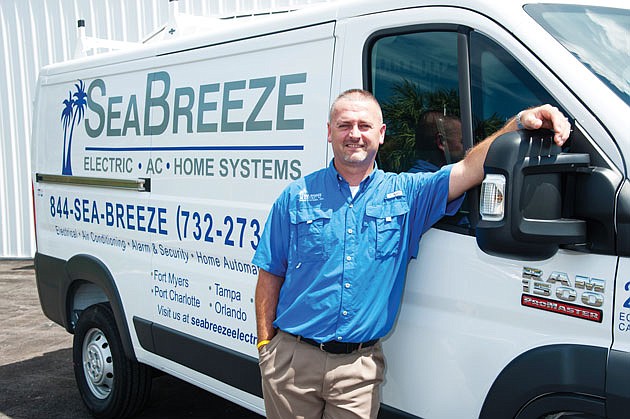- December 13, 2025
-
-
Loading

Loading

Wiring a home is all about making connections. For electric and related services company SeaBreeze Electric Inc., the connections it's forged outside the home have proved just as important as those made within the walls.
“Our growth has all been relationship driven,” says Sean Jenkinson, the company's president. “We don't advertise. Relationships, to me, are your best friend.”
SeaBreeze, which celebrated its 20th anniversary last year, recently moved into a new headquarters in Port Charlotte. Since 2010, it's grown from about 50 employees and about $7 million in revenue to more than 350 employees and $39.4 million in revenue in 2016. Hitting close to $50 million, executives say, is a possibility in 2017.